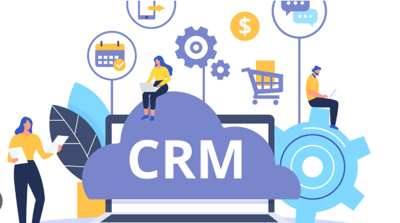
Donor communication is an important part of nonprofit fundraising. Being timely and personal is very important in this regard for effective communication with donors. The process may be rather difficult without proper tools. Here is where CRM integration comes into play. It helps nonprofits keep their donor data organized, automates communication, and assists in tracking. By implementing CRM integration tools in organizations, this will simplify donor communications; hence, it is going to be way easier and effective with minimal waste of time and resources. Here is a helpful insight on the role of CRM:
1. Centralized Donor Information
All donor information is stored in one place with the nonprofit CRM tool. This allows the nonprofit to easily access contact information, donation history, and communication records. Centrally locating this information makes for organization of teams and ensures no major details are missed. Rather than sifting through various platforms or spread sheets, staff can devote time to more meaningful interactions with donors. With an overview of each donor, targeted communication that resonates with an audience is possible for organizations to create.
2. Computer-Mediated Communication
Such integrations further enable nonprofits to automate routine communications, like thanking emails and recurring donation reminders. Automation will save time and allow them to maintain really good communications with all of their donors. For example, it could be set to send an automated acknowledgment in the case of a donation. Such prompt responses surely reflect appreciation, making the fonder relationship even stronger. Saving manual efforts, nonprofits can really cultivate long-term relationships.
3. Specialized Donor Relationship
Personalization is key in communicating with any donors. CRM tools allow organizations to personalize messages according to donor preference, size of gifts, or history of previous contacts. For instance, an environmental cause supporter will get updates about projects concerning environmental issues. This means that donors feel valued and understood. With personalization, there is an upward notch on raising engagement and loyalty to keep giving continuously to the cause. The CRM tool makes it very easy to deliver this kind of personalized experience.
4. Easy Campaign Management
The tools of CRM integration will provide easier planning and execution of fundraising campaigns. These will, in turn, enable nonprofits to segment their lists, follow campaign effectiveness, and actual results in real time to make sure that their communications relevance and timing are proper for each segment of the audience. CRMs also give insight into donor behavior to further refine strategies. Manage campaigns more effectively and elicit better outcomes to nurture better relationships with donors.
5. Better Donor Retention
Donor retention is all about continued and meaningful communication. NonprofitCRM allow nonprofits to be in contact with the donors throughout the year and not only at times when they are raising funds. In other words, they would be regularly informed with updates, impact stories, and personal messages. A donating audience that knows and understands your mission brings in loyal giving. With CRM integration, maintaining this on-going relationship-which is one of the key components of assuring success over the long term-is pretty easy.


(0) comments
We welcome your comments
Log In
Post a comment as Guest
Keep it Clean. Please avoid obscene, vulgar, lewd, racist or sexually-oriented language.
PLEASE TURN OFF YOUR CAPS LOCK.
Don't Threaten. Threats of harming another person will not be tolerated.
Be Truthful. Don't knowingly lie about anyone or anything.
Be Nice. No racism, sexism or any sort of -ism that is degrading to another person.
Be Proactive. Use the 'Report' link on each comment to let us know of abusive posts.
Share with Us. We'd love to hear eyewitness accounts, the history behind an article.